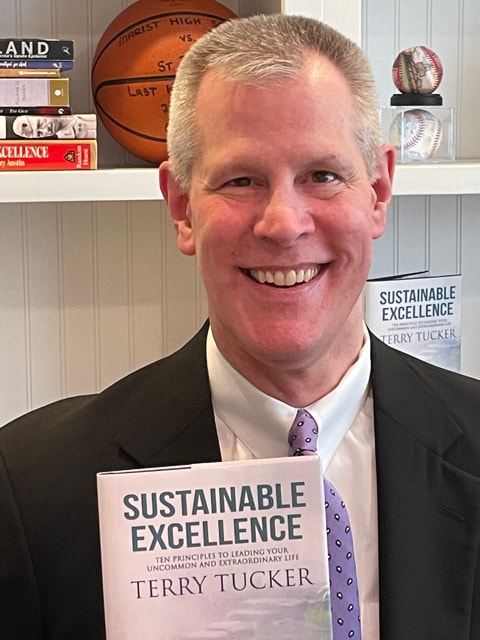|
“When choosing, the best leader is the one that makes you the most uncomfortable.” - Jake Zweig
When thinking of reaching your goals, which person makes you the most uncomfortable?
0 Comments
“There’s a choice we have to make as people. If you want to be great at something, there’s a choice you have to make. We all can be masters of our craft, but you have to make choices. There are inherent sacrifices that come along with that choice.” - Kobe Bryant.
What sacrifices are necessary for you to master your craft? Perhaps you recall the story about the century-old Malden Mills Industries textile plant in Lawrence, Massachusetts. When a fire destroyed the heart of the operation in December 1995, Aaron Feuerstein, president, CEO, and third-generation business owner, refused advice to close the mill, pocket the $300 million in insurance money, and move the operation.
Instead, feeling an obligation to his employees and the community, the then 70-year-old Feuerstein vowed to rebuild the business. He also announced that all 3,000 employees would receive full pay for the next 90 days and health insurance for 180 days - despite the fact that this cost him $1.5 million a week and risked his entire savings. "When all the textile mills in Lawrence ran out to get cheaper labor down south, we stuck," Industry Week magazine reports he reminded his workers. "We're going to stay and rebuild." He kept his promise. Within 10 days the mill was operating again, thanks to new machinery air-freighted in and workers toiling around the clock to restart production. Within two months, 70 percent of the workforce was back on the job. By 1998, all the employees who wanted to had returned to work. Leadership lesson: Feuerstein says is himself. "It was unthinkable for me to run away when we were in crisis," he told Industry Week. "We must show workers the kind of loyalty they extend to us. When companies act in an ethical way, it's good for business and good for the shareholders." From: Leadership...with a human touch, November 16, 1999, Page 11-12 “A person doesn’t become whole, until he becomes a part of something that’s bigger than himself.” - Jim Valvano
What is preventing you from becoming something that is bigger than yourself? “The path of peace comes only when you are willing to walk into your own darkness and face your own shadows.” - Erwin Raphael McManus
What shadows are you facing in your darkness? Mentally Strong Kids Have Parents Who Refuse to Do These 13 Things
Number 1: Condone A Victim Mentality: No matter how unjust or tough the circumstances, refuse to attend your kid’s pity parties. Number 2: Parent Out of Guilt: All parents feel guilty sometimes. Hold firm in your choices, even when it causes you to wrestle with some guilt. Number 3: Make Your Kids the Center of the Universe: While it’s important to make kids your top priority, making kids the center of your universe instills self-importance. Number 4: Allow Fear to Dictate Your: If you want to raise brave kids, be a role model who encourages facing fears. Be a guide but don’t become overprotective. Number 5: Give Your Kids Power Over You: Show your kids that you value their opinions. But make it clear that you’re the leader. Establish a family hierarchy that gives your kids opportunities to practice taking orders. Number 6: Expect Perfection: Kids will strive to meet your expectations as long as those expectations are reasonable. If you expect perfection, they’ll decide there’s no use in trying. Number 7: Let Your Kids Avoid Responsibility: If you want to raise kids who become responsible adults, give them plenty of responsibility. Number 8: Shield Your Kids from Pain: Kids need firsthand experience dealing with uncomfortable emotions like sadness, anxiety and embarrassment. With your support, they can gain confidence in themselves. Number 9: Feel Responsible for Your Kids’ Emotions: Teach your kids to manage their moods on their own. They’ll grow up to become independent adults who don’t need other people to regulate their emotions for them. Number 10: Prevent Your Kids from Making Mistakes: Natural consequences are some of life’s greatest teachers. Let your kids fail sometimes just so you can support them in bouncing back. Teach them that their mistakes are opportunities to grow wiser and become stronger. Number 11: Confuse Discipline with Punishment: Don’t raise kids who fear “getting in trouble.” Use consequences that teach self-discipline so they’ll strive to make better choices. Number 12: Take Shortcuts to Avoid Discomfort: Implement delayed gratification and show your children you’re strong enough to stay the course. You’ll teach them they’re strong enough to reach their long-term goals despite temptations. Number 13: Lose Sight of Your Values: Make sure your priorities accurately reflect your values. Instilling your values in your kids gives them the strength they need to live meaningful lives. From the article: Mentally Strong Kids Have Parents Who Refuse to Do These 13 Things by Amy Morin – January 4, 2018 – SUCCESS Magazine “An individual has not started living until he can rise above the narrow confines of his individualistic concerns to the broader concerns of all humanity.” - Martin Luther King, Jr.
How will your success lead to the broader concerns of all humanity? “I attribute much of my success to my ability to understand and avoid unnecessary distractions.” - Derek Jeter
What are the unnecessary distractions preventing you from reaching your goals? In the late 19th century, a bishop of the United Brethren Church was discussing philosophy with a college professor. The bishop's opinion was that the millennium was at hand. As evidence, he cited the facts that everything about nature had already been discovered and all the useful inventions had already been made.
As the story goes, the professor politely told the bishop that he was mistaken. "Why, in a few years," he said, "we'll be able to fly through the air." "What a nonsensical idea, " the bishop said. "Flight," he assured the professor, "is reserved for the birds and angels." Bishop Wright was the father of two young budding inventors named Orville and Wilbur. Cited in Random House Book of Jokes and Anecdotes. Second Edition and reprinted in Leadership...with a human touch, November 16, 1999, Page 5 “Tough players project confidence and security with their body language. They do not hang their heads, do not react negatively to a mistake of a teammate, and do not whine and complain to the officials. Tough players do their jobs, and their body language communicates that…” - Jay Bilas
Would others consider you a tough person? “Only one who devotes himself to a cause with his whole strength and soul can be a true master. For this reason, mastery demands all of a person.” - Albert Einstein
What have you committed your entire self to obtaining? “Don’t downgrade your dreams to fit your reality. Upgrade your convictions to match your destiny.” - Stuart Scott
How will you upgrade your convictions to reach your destiny? “Inside of me are two dogs. One is mean and evil and the other is good and they fight each other all the time. When asked which one wins, I answer, the one I feed the most.” - Sitting Bull
Which dog are you feeding the most? “Nurture your mind with great thoughts, for you will never go any higher than you think.” - Benjamin Disraeli
What would your thoughts reveal about your goals and personality? The Learning Tree
My grandfather baited the hook with a worm. He did it slowly, allowing me to watch and learn. He handed the rod to me, held my arms and taught me to cast my line into the blue water. Our bobbers floated together, as we sat on the shore hoping for a bite. 'I remember when I could sit here and watch the fish swimming in the water.' He said. 'Sometimes, they'd jump out and land beside me. I didn't need a rod and bait back then.' He was teasing me again. I liked it. The sun warmed us. We sat and talked. 'We have to be patient.' he continued. 'The fish may come or they may not. It doesn't matter. We're out in the sun. It's a beautiful day. If it had rained, we wouldn't be here. We're lucky to have the warmth of the sun.' He leaned back against a tree and sighed. 'Yes, it's a great day.' I watched our bobbers. No fish pulled them under that day. It didn't matter. I was with granddad. I felt grown up. Just being with him was special. Later, I sat in the back of the boat and watched as he rowed. His powerful muscles rippled with each pull on the oars. I wanted to be like him when I grew up. He was well liked by everyone. He'd struggled hard all his life for the little he had, but he managed to find time to laugh. My grandfather was an amazing man. In the short time we had together, he taught me many things: how to bait a hook, the love of a good laugh, the value of a good friend, respect for my elders, to work hard and to love harder. The list is long. He didn't always teach me directly. I pictured him with my mom, when she was a child, teaching and guiding her to maturity. The things he taught her would be passed on to me. The family tree is a learning tree. The larger, older branches support and guide the new smaller branches. They balance the family structure with their strength. Over time, the branches above grow large, join with other families, and shade the older branches below. The old branches grow weak from the lack of light, die and fall away. The branches above take over their role on the learning tree, supporting the new family members. Written by Michael T. Smith |


Author & SpeakerTerry is a sought after speaker who believes in the power of a story to motivate, inspire, and help others lead their uncommon and extraordinary lives. By combining his twelve-year cancer journey with his diverse business, athletic coaching, and hostage negotiating expertise, he delivers compelling yet relatable presentations for conferences, on-line events, panels, meetings, and seminars. Archives
July 2024
|


 RSS Feed
RSS Feed